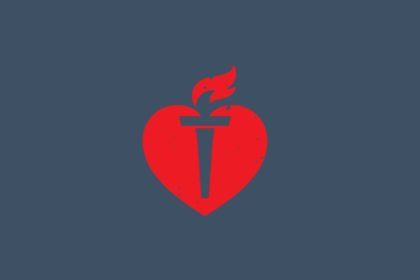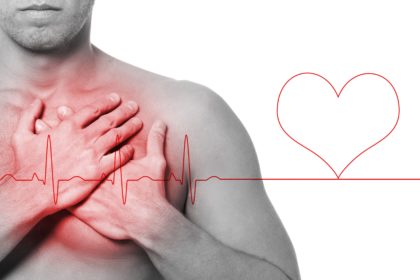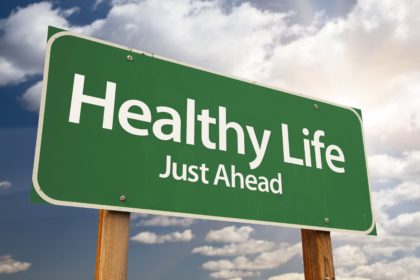Men experience more heart attacks compared to women, but women are less likely to survive. Here’s why heart attacks are the number one killer of women.
Heart Attack Stats
One woman dies from a heart attack every minute, and only 44% of women recognize that heart disease is their greatest health threat.
Why Women Are More Likely to Die from a Heart Attack
1) DELAYED CARE:
- Women minimize their symptoms and delay seeking medical attention.
2) AGE:
- Men tend to experience heart attacks at a younger age (age 65) compared to women (age 72).
- Women are older and often have other medical conditions. Some women go undiagnosed for so long that by the time their disease is confirmed, they are older, sicker, and at higher risk for complications from invasive treatments making them more likely to die from a heart attack than men.
3) NOT DETECTED:
- Women tend to experience “atypical” symptoms.
Women’s Early Warning Symptoms
Symptoms often appear more than one month prior to a heart attack. The most frequent symptoms are:
- Unusual fatigue (71%) that may even feel like the onset of the flu; unexplained weakness
- Difficulty sleeping (48%)
- Shortness of breath (42%)
- Chest discomfort (30%); No chest pain* (43%)
- Indigestion
- Anxiety
A Circulation study showed that 43% of women do NOT experience acute chest pain at all during a heart attack, which is a hallmark sign in men.
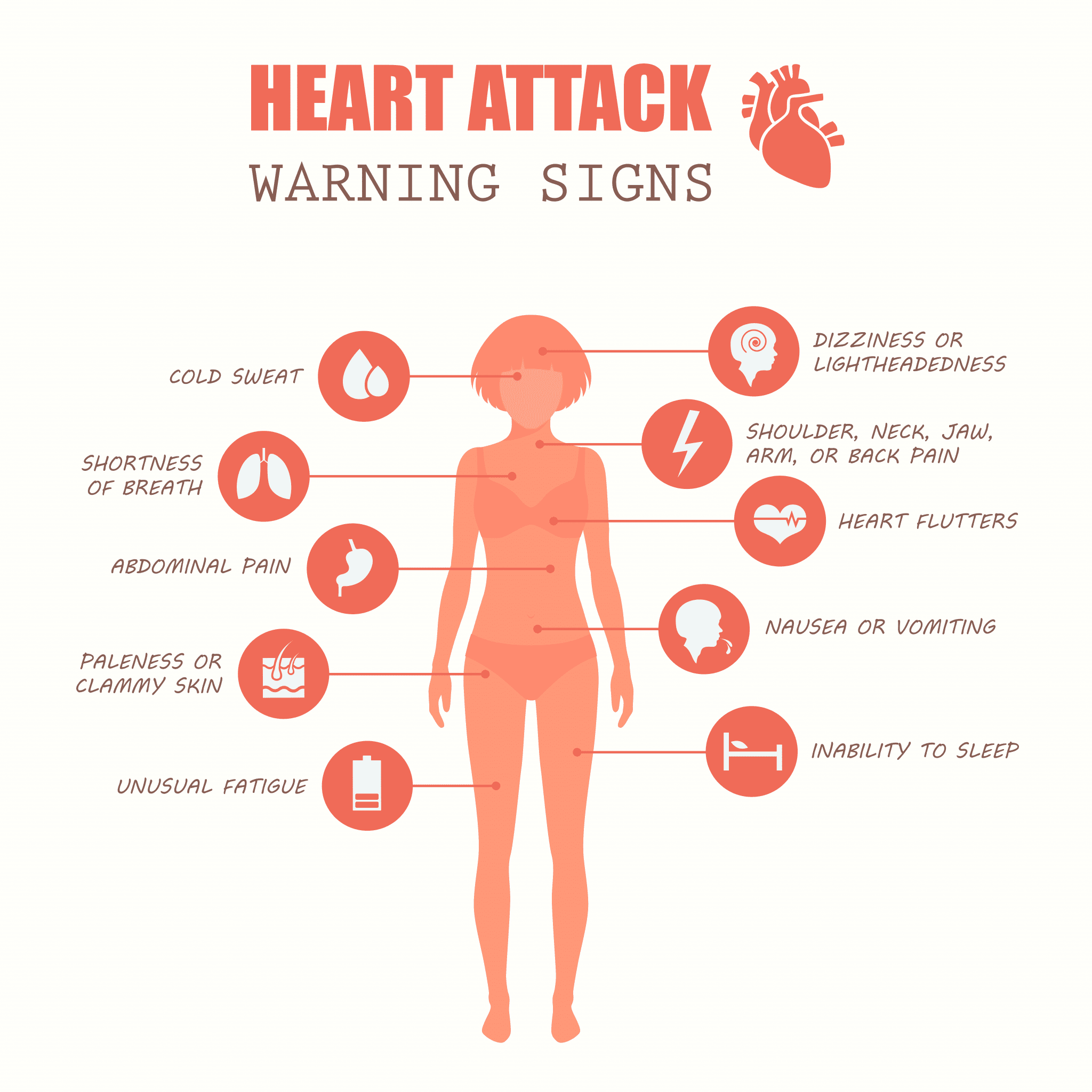
Women’s Major Symptoms During a Heart Attack
Women aged 55 and younger are seven times more likely to be misdiagnosed in the ER and sent home in mid-heart attack compared to men — especially if their complaint is indigestion or extreme fatigue.
- Shortness of breath (58%)
- Weakness (55%)
- Fatigue (43%)
- Dizziness
- Back pain
- Upper abdominal pressure or discomfort (like indigestion), nausea or vomiting
- Cold, clammy skin
- Lower chest discomfort (not necessarily ‘pain’)
Risk Factors for Heart Attacks
Unlike men who have traditional risk factors for having a heart attack (e.g., high blood pressure, diabetes, and smoking), women seem to have a sex-specific family history tied to their risk.
A University of Oxford vascular study found that a woman who has a mother who had a stroke has a higher risk of having a heart attack as well as a stroke.
Parents’ stroke history does not help predict where dangerous plaques build up in the coronary arteries, but instead, it seems to influence the general tendency to form clots.
90-Minute Countdown to Heart Attack Survival
To prevent extensive irreversible heart damage or death, the time from the initial assessment and diagnosis (such as by paramedics per ECG) to opening up the blocked vessel should be no more than 90 minutes.
On average, women wait 54 hours to get medical attention, in contrast to men who wait 16 hours on average.
That’s because men are often urged by their wives to go to the Emergency Room when they complain of chest pain or other classic heart attack symptoms.
Cardiac tissue dies from an insufficient supply of blood. Every minute you wait in getting medical attention can result in more irreversible damage (tissue death) to the heart.
Time is Tissue!
What to Do
- Never drive to the hospital if you or the victim has heart attack symptoms. When having a heart attack, the victim can go into full cardiac arrest enroute to the hospital.
- Call 911 immediately at the first symptom. The longer you wait, the longer the heart attack continues, and the more damage is done. (The paramedics communicate with the hospital. If the hospital’s catherization lab is in use, the paramedics can re-route to another hospital.
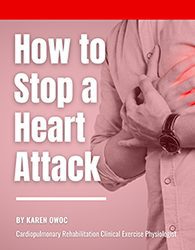
- After calling 911, stop the heart attack (what to do before the paramedics arrive). Get the FREE e-Guide, How to Stop a Heart Attack.
Karen’s Fit Tip: Don’t dismiss symptoms as something minor or try to ‘tough it out’. Know the symptoms, know your risk factors, and pass this information on to women you know.



